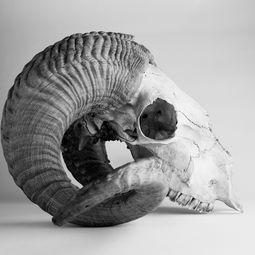The Art of Fish Pond Fishing: Tips and Experience to Enhance Your Hobby
Fishing, an age-old pastime, has captivated the hearts of many across the globe. Whether you are a seasoned angler or a beginner looking to explore the tranquil waters of a fish pond, mastering the art of fishing can be an incredibly rewarding experience. In this article, we will delve into the world of fish pond fishing, offering you valuable tips and sharing experiences that can help enhance your fishing hobby.
Understanding Your Fish Pond
Before you cast your line, it is crucial to understand the fish pond you are fishing in. Here are a few key aspects to consider:
Fish Species: Different fish species thrive in different conditions. For instance, some fish prefer cool, clear waters, while others thrive in warmer, murkier environments. Research the species that inhabit your fish pond to choose the right bait and tackle.
Water Conditions: The clarity, temperature, and pH level of the water can significantly impact fish behavior. Use a water testing kit to gauge these conditions and adjust your approach accordingly.
Structure: Look for areas with structural features such as rocks, logs, or weed beds, as these often serve as natural fish habitats.
Choosing the Right Equipment
The right equipment can make all the difference in your fishing experience. Here’s what you need to consider:
Rod and Reel: Choose a rod and reel that match the type of fishing you plan to do. For fish pond fishing, a lightweight spinning rod and reel are often sufficient.
Line: Use a monofilament line that is appropriate for the fish species you are targeting. Thicker lines may be needed for larger fish.
Bait: The type of bait you use depends on the fish species in your pond. Live bait, such as worms or minnows, can be effective, but artificial lures can also work wonders.
Hooks: Select hooks that are the right size for your bait and the fish you are targeting. Larger hooks are better for larger fish, while smaller hooks are ideal for more delicate species.
Techniques for Success
Once you have the right equipment, it’s time to put your fishing skills to the test. Here are some techniques to help you catch more fish:
Patience is Key: Fishing requires patience. Spend time observing the pond and understanding the fish’s behavior. Fish are more likely to bite when they are active, so be prepared to wait.
Cast with Precision: When casting, aim for areas with structural features or where you have seen fish activity. A gentle, accurate cast is often more effective than a forceful one.

Adjust Your Approach: If you are not getting bites, try changing your bait, lure, or fishing technique. Sometimes, even the smallest adjustments can make a big difference.
Learn from Others: Don’t hesitate to ask for advice from fellow anglers. Experience is a valuable resource, and you can learn a lot from those who have been fishing for years.
Experience Sharing
Here are some insights from fellow anglers who have shared their experiences fishing in fish ponds:
John D., a seasoned angler: "I find that early morning or late evening are the best times to fish. The fish are more active during these periods, and the cooler temperatures can make them more susceptible to biting."
Sarah M., a beginner: "My tip is to start with simple bait like worms. They are easy to use and can be effective for a variety of fish species. Don’t be afraid to ask for help; it’s a great way to learn."
Mark T., a fishing enthusiast: "I’ve had the most success by targeting areas where I’ve seen fish rise to the surface. It’s a sign that they are feeding, and it’s a great opportunity to catch them."
Conclusion
Fish pond fishing can be a relaxing and enjoyable hobby that offers a great escape from the hustle and bustle of everyday life. By understanding your fish pond, choosing the right equipment, and applying effective techniques, you can increase your chances of success. Remember to always practice responsible fishing and respect the environment. With patience and persistence, you too can become a master of the art of fish pond fishing. Happy fishing!












